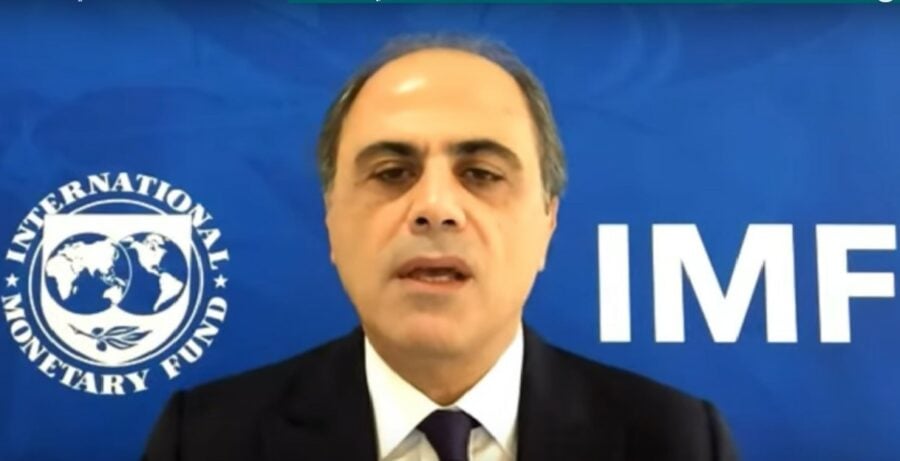The Director of the Middle East and Central Asia Department at the International Monetary Fund (IMF), Dr. Jihad Azour, announced that the improvement in oil prices and the management of the Coronavirus pandemic helped support the countries’ economic recovery in the region, especially those of the Gulf.
In fact, he praised the UAE’s experience in responding to the pandemic, proving able to balance between protecting citizens’ lives and reopening the economy, thus accelerating the recovery process.
Azour, who was speaking at a symposium organized by the “Carnegie Endowment” entitled ” What Lies Ahead on the Path toward Recovery in the MENA Region?” expected that 2022 would be the year of continuing economic recovery that began last year.
On the other hand, he raised a series of questions at the beginning of this year over the following:
To what extent will the economies be able to adapt to new virus variants? How will these economies deal with the inflation rates? How will fiscal, monetary, and economic policies be coordinated to avoid crises? Lastly, how will geopolitical developments affect economic recovery?
Challenges facing the countries of the region
Azour identifies major challenges facing the countries of the region, most notably:
- Unemployment rate which jumped to an unprecedented level of 11.8%. He noted that the level of unemployment among women and youth is double that of other labor market segments in the region.
- Inflation, which primarily weighs on the budgets of middle and low-income families in the region, since the biggest price increase was in food and basic commodities. This highlights the need for a comprehensive social system and social safety nets to support the less fortunate in society.
- The sharp contrast in vaccination rates between countries where rates have reached about 90% whereas others are at less than 5%.
- Increased levels of debt and the need to invest in future sectors such as technology and environmentally friendly sectors, in addition to the need to protect the countries of the region from the consequences of global geopolitical developments.
Growth Trends
With regard to the growth rates countries expect to achieve, Azour divided the region into three groups:
– The first group encompasses the oil-exporting countries which are benefiting today from significantly higher oil prices to improve their economic growth situation, financial flows and balance of payments (BOP).
Some of these countries have taken positive measures in recent times to protect citizens’ lives, safeguard the economy and restore economic recovery. Hence the importance of working to protect what has been achieved by investing in renewable energy and diversifying the economy.
– The second group comprises emerging middle-income countries such as Egypt, Tunisia, and Jordan, which have a certain degree of openness and have felt the impact but have proven their ability to adapt. These countries must continue the process of fundamental economic transformation by giving a greater role to the private sector and building sound economic assets and financial policies.
– The third group includes the countries which have suffered from the crisis and require assistance to respond to them and find their way back the road of growth.
Ukrainian Crisis
Azour spoke about the effects of geopolitical developments between Russia and Ukraine, saying that this matter will affect the region’s countries on several axes, most notably the economic axis, especially since many countries in the region have high levels of trade exchange with Russia and Ukraine.
On the financial linkage axis, Russia is considered a financial center for many neighboring countries and has investments in other countries. Additionally, he stressed the importance of closely monitoring the decision in the region to protect the economy from any possible repercussions.
Addressing the Lebanese crisis must be comprehensive
Moreover, Azour identified three axioms in dealing with the economic crisis in Lebanon:
First of all, this complex and deep crisis has significant negative repercussions on the citizens’ lives. Therefore, solving this crisis must involve all of its components.
Secondly, the economic advancement process requires an internal and external approach. In the internal part, there must be a clear vision and a comprehensive approach to overcome the crisis, while taking into account everyone’s opinions and perceptions, in order to get out of one of the world’s worst economic upheavals.
Finally, the International Monetary Fund continues to cooperate, while emphasizing that the program, achieved on a national level, will fulfill its purpose. In other words, the program will provide the Lebanese citizens with the means to respond to the crisis, protect the most vulnerable group, and gain confidence. In return, it will show the outside world Lebanon’s seriousness in dealing with the crisis.








